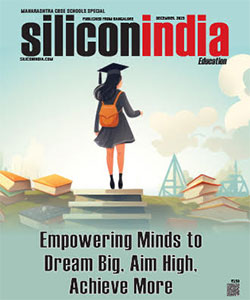Disruption in the Global ESDM Supply Chain - The India Opportunity

India has achieved a tremendous demand for Electronic products over the last decade. And it has witnessed Electronics System Design and Manufacturing (ESDM) industry as one of the fastest-growing sectors of the nation. The remarkable growth of the industry is globally renowned for its consumption potential.
Changing global landscapes in electronics design and manufacturing capabilities and cost structures have turned the attention of global firms towards India. Companies from around the world are looking to set up local capabilities in India to serve the resident market and supply to overseas markets. This has led the nation to productive results in the development of capabilities across the ESDM value chain. The different sectors within the ESDM industry are at varying stages of development. Likewise, various electronics applications markets such as telecom, automotive, consumer, and industrial electronics are at different phases of ecosystem development. The focus is presently on providing the necessary impetus to take advantage of the dormant capabilities across the various electronics markets and mounting the missing links to make the local ESDM segment globally competitive.
Pertaining to the pace of technical development, technologies, products, and how people consume the electronic industry products are also affected. The tectonic change towards the adoption of electronic gadgets in daily life has brought a different lifestyle and resulted in an insatiable appetite for electronic device consumption. This means that consumers would be directly proportional to population, and India, as in the past, would continue to be a significant consumer of electronic goods. Nevertheless, India's capacity for electronic manufacturing is still far from par.
During the ESDM sessions on 18th Nov at BTS 2021, Rory O'Connor, Vice President Global Supply Chain, Intel inc, has discussed the industry's opportunities, challenges, and strategies. In his presentation, he focused on digitalization and the importance of data flow to make better decisions. He suggests using the data in a way that tells the story. "Your job is really best to translate the data into a story that allows your management teams to make better decisions," he said.
He further said, "I think that the best supply chains are those that continuously learn from the crisis that they're in today. And they're ready for tomorrow. If I find out that what we could do better, it's definitely the depth of understand and your supply chain. It's not just your customers, your suppliers, but it's their suppliers and their suppliers. And you need to cut down to four or five levels of your supply chain, and build your resilience at that level in partnership with your suppliers to truly be able to respond to be resilient to a crisis like COVID. And that was the learning we took from it. I wonder we lived about going forward."
Furthermore, he talks about the "Empower talent." Considering his experience during the pandemic, he shares an incident where people took actions based on present data instead of waiting for the boss's command. He states, "certain organizations within our own group in terms of supply chain is people stepped up, and were ready to make decisions, knowing that they had the data, and that the approval for those decisions, they could make them because you didn't have time to wait for 24 hours or 48 hours or for your boss in the US or for Asia or from China or from India, to make that decision, you have to make the decision immediately."
It ensures that the people are talented enough and possess critical skills to make empowered decisions at the right time to respond to the crisis. And that is so important.
He adds, "If you have a global supply chain like interests, and that diversity and inclusion that is, is in your supply chain is a must in your people as well, you have to have a diverse workforce. But global, both in terms of cultures, in terms of your female, male, all diversity have to be included in that. And the more diverse that organization is, the more points of view come to the table, the better decisions will be. And we certainly saw that the benefits of diversity inclusion in the supply chain."
Hence, global companies need to ensure that they have empowered talent in each of those locations. It's not just about empowering talent in one or two critical spots, those people you go to all the time; it's really about empowering your talent diversely and inclusively across the globe so that you can have people in any location ready, willing, and able to make those decisions and step up during times of crisis.
On the concluding note, he recommended to learn from the pandemic crisis and taking those lessons to innovate and be ready for the next crisis in the future.



